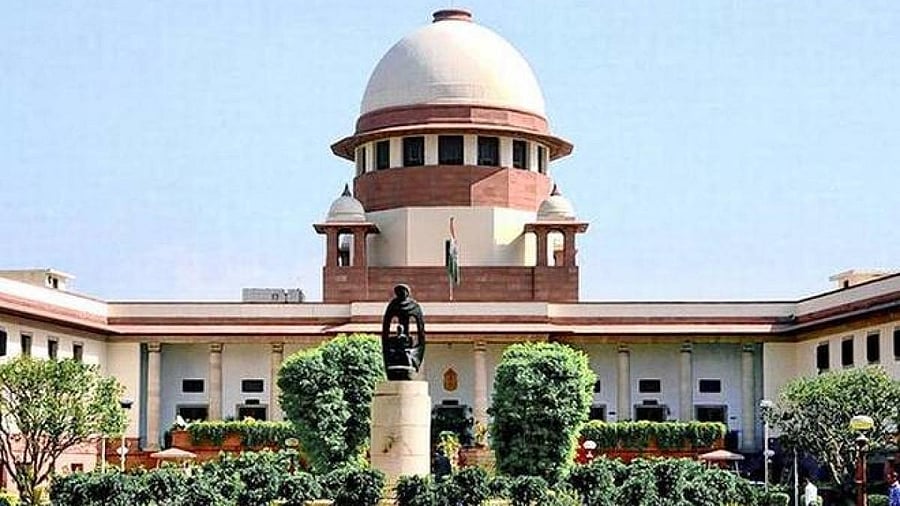
The Supreme Court of India
Credit: PTI File Photo
New Delhi: The Supreme Court on Monday granted custody of a 22-year-old man with the cognitive abilities of an 8 to 10-year-old child due to ataxic cerebral palsy and mild intellectual disability, to his mother, rejecting the father's contention that their son wanted to live with him in India.
A bench of Justices Surya Kant, Dipankar Datta and Ujjal Bhuyan said, that in the event there is any confusion or doubt regarding a person’s capacity and ability to make independent decisions and if there is a definitive opinion on disability endorsed by a specialist, domain expert, or a doctor, the court should give due credence to that opinion.
"Even though courts are well within their rights to come to a finding distinct from an expert’s report, they cannot discard the expert’s opinion, as a whole, for no rhyme or reason," the bench said.
The court said given the sensitive and complex issue of alleged illegal detention of a person with severe cognitive limitations, the high court ought to have considered and given due credence to the evaluation committee’s report.
The parents, also US citizens, were engaged in a legal battle over the custody of their son after their divorce in 2007. The mother challenged the Madras High Court in a habeas corpus plea, saying it ignored the specific pleadings regarding intellectual disability and cognitive limitations, substantiated by the reports of the evaluation committee.
The mother claimed she had been granted full guardianship by an Idaho court. The father took the son to Chennai in December 2023 without her consent.
The bench went by the reports of NIMHANS, Bengaluru and the evaluation committee, stating that owing to cognitive and physical limitations, the son does not possess the capacity to make well-informed, independent decisions for his benefit.
It also said the principle of comity of courts and a pre-existing order of a foreign court must yield to the best interests of the child, especially when the court has decided to conduct an elaborate enquiry in this regard. It said such cases must be decided on the sole and predominant criterion of ‘what would serve the interests and welfare’ of the boy.
The pre-existing order of a foreign court is merely one of the circumstances to consider when assessing the best interests and welfare of the person concerned, this doctrine was evolved to protect children who may, unwittingly, become collateral damage in their parents’ legal disputes, it said.
The court pointed out this has gained significance over the past several years, owing to the frequency and ease of migration, the court added.
"To consider the interests of the child, the court must take into account all attending circumstances and the totality of the situation. The court must consider the welfare and happiness of the child as the paramount consideration and go into all relevant aspects of welfare including stability and security, loving and understanding care and guidance, and full development of the child's character, personality, and talents," it said.
The bench also underscored that the court has to give due weightage to the child's ordinary contentment, health, education, intellectual development, favourable surroundings, and future prospects. Further, over and above physical comforts, moral and ethical values also have to be taken note of, as they constitute equal, if not more important, factors than the others.
